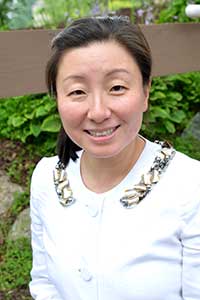- Calls to this hotline are currently being directed to Within Health or Eating Disorder Solutions
- Representatives are standing by 24/7 to help answer your questions
- All calls are confidential and HIPAA compliant
- There is no obligation or cost to call
- Eating Disorder Hope does not receive any commissions or fees dependent upon which provider you select
- Additional treatment providers are located on our directory or samhsa.gov
How Cyber Bullying Can Impact Eating Disorder Sufferers on College Campuses

Contributor: Dr. SooMi Lee Samuel, MD, MA, Medical Director for Timberline Knolls
There are many influential stressors that may trigger the development of an eating disorder, including both biological and environmental factors. For the college student who may be biologically predisposed to developing an eating disorder, the transition to college can be a tremendous undertaking.
Being exposed to various stressors may be triggering to the college student who is already susceptible to having an eating disorder.
Understanding some of these potential triggers and effective ways for dealing with them may be helpful to a student during their college years.
How Bullying Impacts College Students
Bullying, in any form, can be an environmental stressor for college students. While we tend to think of bullying as something that occurs in grade school, it often proliferates and trickles into the college years in various ways. This might occur in the form of hazing, stalking, or harassment. Unfortunately, this has also evolved into cyber-bullying, which has become more common in today’s age of digital and social media.
Cyber-bullying may involve the embarrassment, humiliation, harassment, or threatening behaviors via the use of digital technology. This can occur not only through the Internet but also through any type of mobile devices. College students may be exposed to cyber-bullying through various ways, such as the spread of rumors or gossip through group texting, posting embarrassing pictures or messages on social media platforms, or causing humiliation and/or threats online. With more college students engaging through social networks online, cyber-bullying may be an unfortunate reality that many are faced with on a daily basis.
Seeking Out Appropriate Help

As a college student who is exposed to cyber-bullying, it is important to know that help should be sought immediately by confiding in someone trustworthy and reporting such acts to a person in authority or law enforcement when appropriate. If you are a college student who has been the victim of cyber-bullying, know that you are not alone and help is available to protect you from further harm and destruction.
If you have found yourself relapsing with eating disorder behaviors as a result of cyber-bullying, reach out to your professional treatment team to address these concerns as soon as possible and keep your recovery efforts on track.
Community Discussion – Share Your Thoughts Here!
How can a college student in recovery protect themselves from cyber-bullying?

Prior to coming to Timberline Knolls, Dr. Lee-Samuel was affiliated with multiple inpatient psychiatric hospitals including Lakeshore Hospital, Provena Mercy, and Alexian Brothers. She had a private practice for several years and was an assistant professor at the University of Chicago. She also served as the Director of Psychiatric Services for DCFS of Illinois. Dr. Lee-Samuel attended Wellesley College in Massachusetts, the University of Cincinnati College of Medicine and the University of Chicago Harris School of Public Policy. She is a member of the American Academy of Child and Adolescent Psychiatry.
The opinions and views of our guest contributors are shared to provide a broad perspective of eating disorders. These are not necessarily the views of Eating Disorder Hope, but an effort to offer discussion of various issues by different concerned individuals.
We at Eating Disorder Hope understand that eating disorders result from a combination of environmental and genetic factors. If you or a loved one are suffering from an eating disorder, please know that there is hope for you, and seek immediate professional help.
Last Updated & Reviewed By: Jacquelyn Ekern, MS, LPC on September 11, 2016
Published on EatingDisorderHope.com
